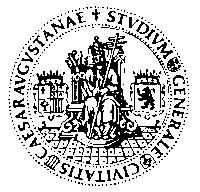|
|
|
|
|
|
|

SPAIN

Introduction
Spain, Europe`s third largest nation, occupies most of the Iberian Peninsula at the western edge of the continent. Being the second highest country in Europe (after Switzerland), Spain has an average elevation of 660 m (2,165 ft), with 25 % of the surface over 1,000 m (3,280 ft) and only 11 % less than 200 m (656 ft). The Spanish have long tended to live in defensible urban centres rather than scattered on the land. Rapid urbanization, however, did not take place until more recently than in the rest of Europe. Approximately 75 % of the population lived in urban areas in 1980; in 1953, only 53 % of the population was urban. The two largest cities, each with well over 2 millions inhabitants, are Madrid and Barcelona. Other large cities are Valencia, Seville, Zaragoza, Bilbao, Malaga and Las Palmas. Population densities in Spain are generally lower than in most other parts of Europe.
Zaragoza and the University
Zaragoza is the capital of the Zaragoza province in the Aragon region of northeastern Spain and is located on the Ebro River. The city has a population of 700,000. The city of Zaragoza was founded by the Roman legions in 15 B.C. next to the ancient Iberian settlement of Salduie, but the history is most complex. In this sense today it is possible to distinguish in the buildings between the Moslem Zaragoza, Zaragoza in the early Middle Ages, Renaissance Zaragoza, Baroque Zaragoza, Neoclassical and Contemporary Zaragoza.
The origin of the University of Zaragoza has to be sought in an order of Pope Sixtus IV, in 1474, who created a "General Study". This became a University in 1542, but it was not until 1583 when it entered into practice, thanks to the steps taken and to the economic contribution of Pedro Cerbuna, who would later be the Bishop of Tarazona. To begin with, at the University of Zaragoza, one could study theology, canon and civil law, medicine and philosophy. Althought during the second half of the XIX century new Faculties and Schools were created, it was not until the seventies of this century when the University of Zaragoza really grew, with the creation of new Centres, the integration of others and the expansion to other towns of Aragon.
The law degree
The law degree in Spain is organised into five levels, each level ends with written examinations of the different subjects. It takes a Spanish law student about 5 years to graduate.
Computers and Law courses
The University offers courses in the Faculty of Law and in the School of Management and public Administration. The Faculty of Law offers courses to undergraduates and to postgraduates. The course for undergraduated is offered between October-December 1995 to students on the fifth level of the law study. The main topic is Data protection. The education consists of 12 hours lecturing. The language of the course is Spanish. Between October 1995 and June 1996 the Faculty will offer a Master on Sciences and Techniques in criminal investigation (500 hours). A part of the course will be on Computers and Law. The course is to postgraduates. It is in preparation by the Faculty a postgraduated Diplom of Specialist on Computers and Law. Topics in this course will be Legal Methodology, Computer Law, Computer Ethics, and Introduction to Computer Science, Artificial Intelligence and Legal Documentation Retrieval. The course will have 125 hours of theory and 125 hours of practice, also 50 hours of Practicum in different public institutions. The language of the course will be spanish. The course will be probable between February-June 1996.
The School Public Administration offers between February-June 1996 an undergraduated course on Computers and Law. The main topics are: Legal methodology, Data protection and Computer Ethics. The course will have 30 hours (15 of theory and 15 of practice). Furthermore, it is possible to do a dissertation project on Artificial Intelligence and Law in Zaragoza. Guidance will be provided by the University. All the courses are open for the ERASMUS students. Depending on the period and number of students, some special seminars in English on the subject might be organised.
Languages
Most Spanish people do not speak other languages. To make a study period at the University of Zaragoza worthwhile, basic knowledge of the Spanish language is necessary. In February and October (subsidised) Spanish language courses are organised by the University of Zaragoza.
Facilities
ERASMUS students can use the computers of the Faculty of Law and the University Library. The libraries of the Seminario de Informitica y Derecho and of the Philosophy of Law contain most significant journals and books on Computers and Law.
Accommodation
Accommodation will be provided by the university. The rent will be between 26.000 and 32.000 pesetas per month for accommodation. Full board accommodation will be between 50.000 and 55.000 pesetas per month. The accommodation office of the University of Zaragoza can be contacted by phone between 12.00 and 14.00 hours local time on: +34 76 568812.
Cost of living
The cost of living is comparable to most other cities in Europe.
Whom to contact for more information
For more information you can contact professor dr. Fernando Galindo or mr. José Félix Munoz, who work at the Faculty of Law and who are coordinators for the ERASMUS programme Computers and Law in Zaragoza:
Universidad de Zaragoza
Facultad de Derecho
Seminario de Informatica y Derecho
Ciudad Universitaria
50009 ZARAGOZA
Spain
Phone: +34 76 555980
FAX: +34 76 550080
Email:
cfa@cc.unizar.es(cfa@cc.unizar.es)
jfm@cc.unizar.es(jfm@cc.unizar.es)